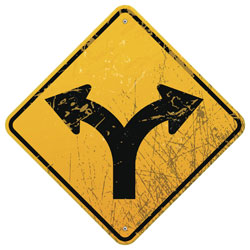Critics Say Intersection and Road Design Increase Risk to Pedestrians
 Pedestrian injuries and fatalities have been steadily on the rise since 2009, with an increase of nearly 650 pedestrian deaths nationwide in just three years. A study by the National Complete Streets Coalition found that nearly 50,000 pedestrians were killed in motor vehicle accidents between 2003 and 2012, and nearly 700,000 injured. One of the principal reasons, according to personal injury lawyers and accident reconstruction specialists—more American roadways and intersections are being designed to enhance motor vehicle traffic, at the expense of the lives of pedestrians.
Pedestrian injuries and fatalities have been steadily on the rise since 2009, with an increase of nearly 650 pedestrian deaths nationwide in just three years. A study by the National Complete Streets Coalition found that nearly 50,000 pedestrians were killed in motor vehicle accidents between 2003 and 2012, and nearly 700,000 injured. One of the principal reasons, according to personal injury lawyers and accident reconstruction specialists—more American roadways and intersections are being designed to enhance motor vehicle traffic, at the expense of the lives of pedestrians.
The Corner Curve
The vast majority of pedestrian accidents involve people who are struck by a vehicle while legally in a corner crosswalk, and most of those happen when the motorist makes a turn and strikes the pedestrian. Authorities say that changes in the design of corners and crosswalks have exacerbated this problem, pointing to the trend to “shorten” a corner by changing it from primarily square to curved. The increased curve is designed to make it easier and faster for a car to turn a corner.
The increased speed with which many motorists now take those corners makes it more difficult for them to stop for a pedestrian. With the older, square corner, motorists were required to slow down before negotiating a turn, but the newer curved corners eliminate the need to do that.
The Absence of Sidewalks
Another modern trend—the absence of sidewalks, especially in more affluent neighborhoods. Critics point out that those neighborhoods tend to see higher rates of speed, as houses are farther apart. In addition, the modern trend has been toward narrower roads, again in suburbs and more affluent neighborhoods. The combination of narrow roads, high speeds and the absence of a shoulder or sidewalk significantly increases the risk to anyone on foot.
Contact Us
At Taylor & Boguski, we bring more than 70 years of combined legal experience to injured people throughout New Jersey. For a free initial consultation, contact our office online or call us at 856-234-2233.


 Divorce is always hard on children, even if family life was difficult before the breakup. As a parent, you don’t want to do things that will only add to your child’s sense of loss and grief. Here are important things to do and to remember to help your children cope with the changes the come with divorce.
Divorce is always hard on children, even if family life was difficult before the breakup. As a parent, you don’t want to do things that will only add to your child’s sense of loss and grief. Here are important things to do and to remember to help your children cope with the changes the come with divorce. Joining the trend set by Texas and Oklahoma, the state of Tennessee is looking at a statute that will create a “free market” alternative to the requirement that Tennessee employers carry a policy or workers’ compensation insurance. Sponsors say there is strong legislative support to amend the state’s workers’ compensation laws to reduce costs to employers while still protecting workers and their families.
Joining the trend set by Texas and Oklahoma, the state of Tennessee is looking at a statute that will create a “free market” alternative to the requirement that Tennessee employers carry a policy or workers’ compensation insurance. Sponsors say there is strong legislative support to amend the state’s workers’ compensation laws to reduce costs to employers while still protecting workers and their families.